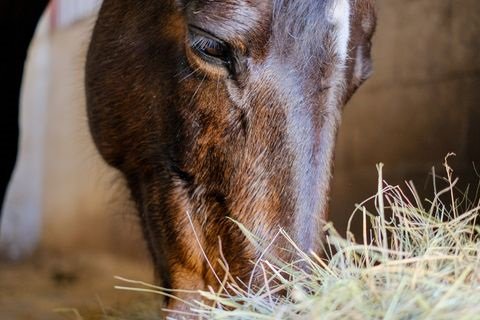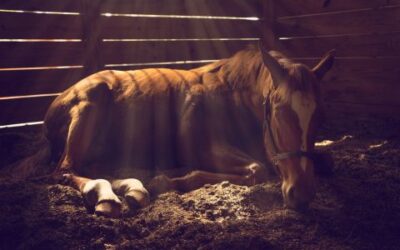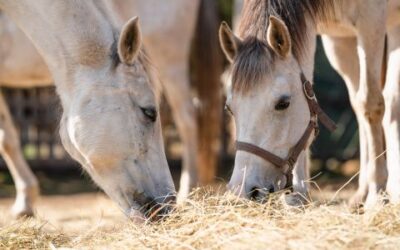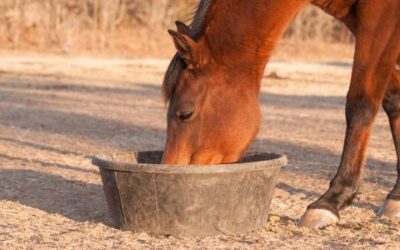
For those of us privileged enough to care for an older horse, we know that it is an honor to show a horse through their golden years. We provide them with the highest-quality forage, the best grain, and the utmost care. But have you placed any thought into the quality of the air that they are breathing? The right senior horse respiratory care can help ease their last years.
While each horse needs quality air to breathe, senior horses are particularly at risk for respiratory diseases. Dr. Mary Rose Paradis DVM, MS, Dipl. ACVIM, reported in her presentation at the 2013 American Association of Equine Practitioners Convention that respiratory problems were the third most common issue presented to her referral hospital for senior horse health.
For many senior horses, consistent turnout is key. Giving them access to fresh air is the best thing for respiratory health. However, it is unlikely that your horse is going to live completely outside.
When your horse is inside the barn, the removal of dust (well, as much as possible!) from the horse’s stall and feed is imperative. Many beddings are quite dusty, such as straw and sawdust, so it may behoove you to look for alternatives. It is also important that you remove your horse from the stall when you clean it, as cleaning stirs up dust and other harmful chemicals, such as ammonia.
Additionally, it is important to consider the best hay for senior horses. Some hay can be dusty or full of mold spores, which will irritate your horse’s system. Many types of chopped forage for horses are treated in such a way that the mold is killed off and coated to make it virtually dust-free. This makes them an excellent choice for senior horses.
Increased ventilation will also help to improve your senior horse’s respiratory health. No matter the season, consider providing more than adequate ventilation when you have a senior horse in the barn. It doesn’t take much to irritate the delicate respiratory system of an older horse.
If your horse’s respiratory distress continues to progress, it is prudent that you contact your veterinarian.
Maintaining senior horse respiratory care requires constant monitoring on the part of the owner, but the results are more than worth it: you’ll have a horse that can breathe easily.




